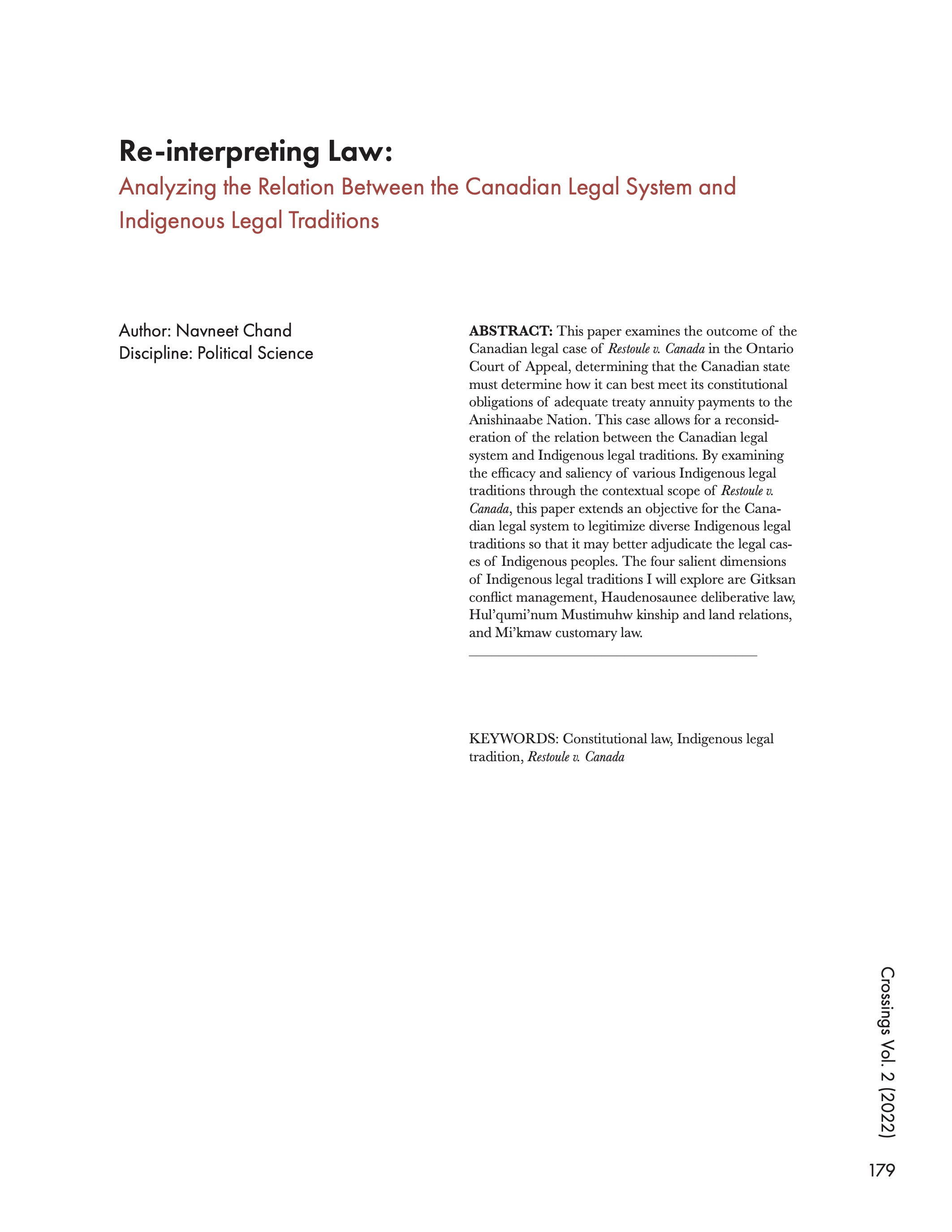Re-Interpreting Law
Analyzing the Relation Between the Canadian Legal System and Indigenous Legal Traditions
DOI:
https://doi.org/10.29173/crossings97Abstract
This paper examines the outcome of the Canadian legal case of Restoule v. Canada in the Ontario Court of Appeal, which has decided that the Canadian state must determine how it can best meet its constitutional obligations of adequate treaty annuity payments to the Anishinaabe Nation, and how allows for there to be a reconsideration of the relation between the Canadian legal system and Indigenous legal traditions. By examining the efficacy and saliency of various Indigenous legal traditions through the contextual scope of Restoule v. Canada, this paper extends an objective for the Canadian legal system to improve its connection to legitimizing diverse Indigenous legal traditions to better adjudicate the legal cases of Indigenous peoples. The four salient dimensions of Indigenous legal traditions I will explore are: Gitksan conflict management, Haudenosaunee deliberative law, Hul’qumi’num Mustimuhw kinship and land relations, and Mi’kmaw customary law.

Downloads
Published
Issue
Section
License
Copyright (c) 2022 Navneet Chand

This work is licensed under a Creative Commons Attribution 4.0 International License.

